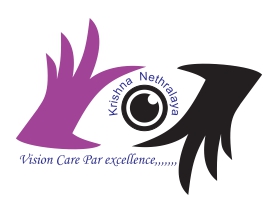Home > Paediatric
Empowering the young eyes to see a promising future
Healthy eyes of the young ones must be our priority. We promise to craft a vibrant world for every child visiting our clinic.
On this page, we will be focusing on the necessity of having healthy eyes for our children. Every child is unique, and so are their eyes. It is important to take adequate care of the eyes of the little ones from the time they are born. As a child grows up, their eyes also go through various developmental stages. Hence, it is important to take appropriate care of children’s eyes from a nascent stage to ensure their healthy eyesight.


The emergence of Paediatric Ophthalmology has made it easy to understand and diagnose problems related to children’s eyes. Nowadays, increased exposure to screen time has adverse effects on children’s eyes. Hence, in the modern world, the task of treating a child’s eyes has become more challenging for ophthalmologists.
Parents also need to be aware of the problems their children are facing. It is necessary that the young ones visit a Paediatric Ophthalmologist regularly to ensure their eyes are in good condition. It is crucial that parents and elders at home regularly monitor their children’s eyes and visit an ophthalmologist in case of any abnormalities in their eyesight. The proliferation of medical science has ensured the development of child-friendly equipment for properly diagnosing and treating children’s eyes. At our clinic, we strive to create a child-friendly environment for taking optimum care of the eyes of the little ones.
Pediatric Cataract is a condition in which a child’s natural lens has become cloudy or opaque. Though it is a rare occurrence, the chances of the development of a cataract should not be neglected. The disease needs to be treated at the earliest to minimize the risk of complete loss of vision in children.
Squint refers to improper alignment of the eyes. As a result, both eyes point in different directions. It can occur both in children as well as adults, but the rate of severity is different. For children, squint must be treated at the earliest to reduce the emergence of complex situations like complete loss of vision.
The paediatric retina is caused due to abnormalities in the muscles in the retina. It affects babies who are born before 34 weeks of gestation period. They are also known as premature babies. Such a condition makes a baby prone to be affected by blindness is not treated on time.
It is a fatal eye cancer that can impact the lives of young ones. In this condition, a tumor grows on the retina, which is very difficult to be detected at the earlier stages. However, there are a number of ways, including surgery or chemotherapy, to treat retinoblastoma, through which the lives of the young ones can be saved.
This condition takes place when both eyes are not equally used. The eye that is used less becomes lazy, resulting in a lowering of vision. The problem must be addressed in children to ensure the efficacy of the treatment procedure.
Refractive errors are disorders that affect eyesight. However, they shouldn’t be categorized as diseases. Refractive errors include-
You will see certain symptoms if your child is facing eye problems. The symptoms include-
You can start taking your child to an ophthalmologist for regular checkups from 6 months of birth. However, if you find any problems or irregularities in your child’s eyes, visit an ophthalmologist at the earliest to ensure proper diagnosis and treatment.
The eyes are interlinked with the brain. Abnormalities in the eyes directly affect the working of the brain. Such an occurrence affects the maturity and overall development of the child. Also, taking care of children’s eyes is important to eradicate any problem that might lead to complete visual impairment. Hence, we take special care of the eyes of the young ones to help them experience a brighter future.
It is an eye disease commonly referred to as lazy eyes. In this condition, one or both eyes can have lower vision with respect to normal and, if left untreated, may result in complete loss of eyesight. Such a condition must be treated at a young age, as restoring normal eyesight at a mature age is not possible.
Doctors can advise your child to wear contact age based on the condition of the eyes and your child’s maturity to handle it. However, expert guidance is a must to ensure safety.
It is possible to correct refractive errors with the help of spectacles or lenses. Visit an ophthalmologist for the best guidance and treatment.
Strabismus surgery is essential to correct the alignments of the eyes. The muscles are regulated through the surgery that controls the movements of the eyes.
Eye injury is harmful and may lead to complex eye disorders. Visit a pediatric ophthalmologist at the earliest for effective treatments and to minimize the risks of complications.
Premature birth may lead to disorders like retinopathy of prematurity. In this condition, the blood vessels present in the retina get damaged.
It is crucial to visit a pediatric ophthalmologist for eye checkups on a regular basis. However, the frequency of follow-ups will be advised by your doctor based on the condition of your child’s eyes.
Stay connected with the latest advancements in eye care and receive exclusive insights by subscribing to our informative newsletter

Discover unparalleled eye care at the best eye hospital in Yelahanka. Our renowned facility, led by the best eye doctors in Yelahanka, is dedicated to preserving your vision and enhancing your ocular well-being.
Copyright © 2022. All rights reserved by krishna nethralaya